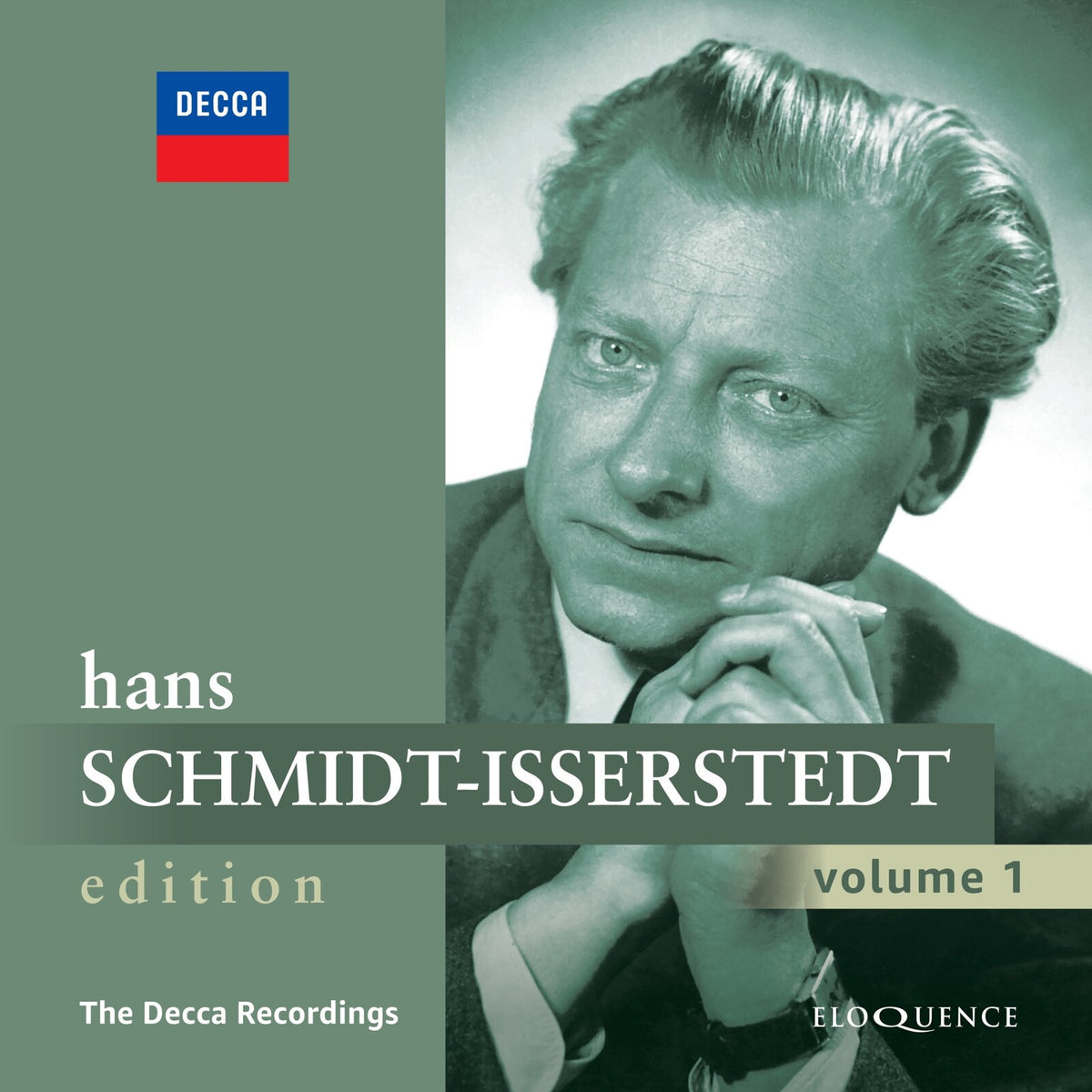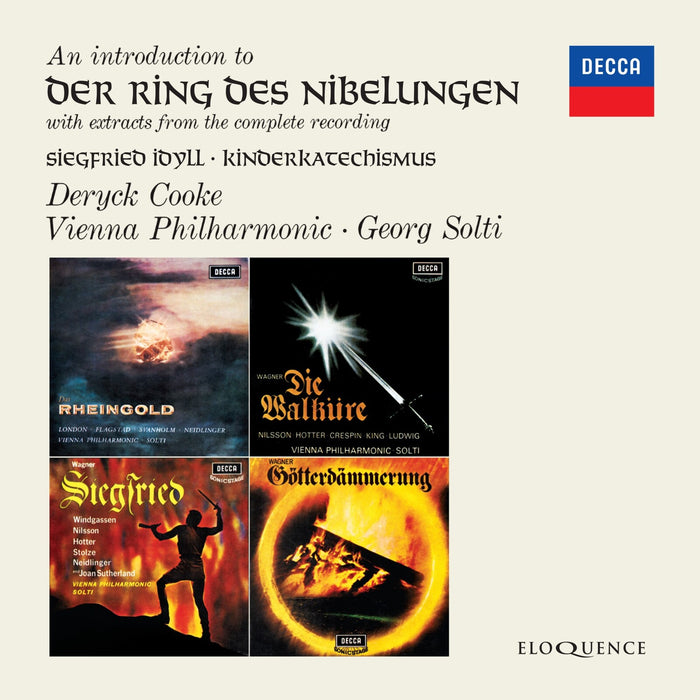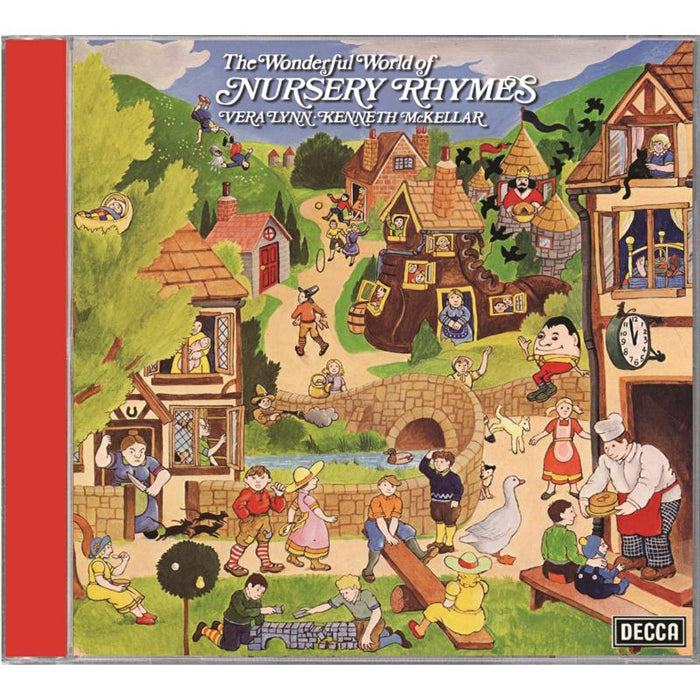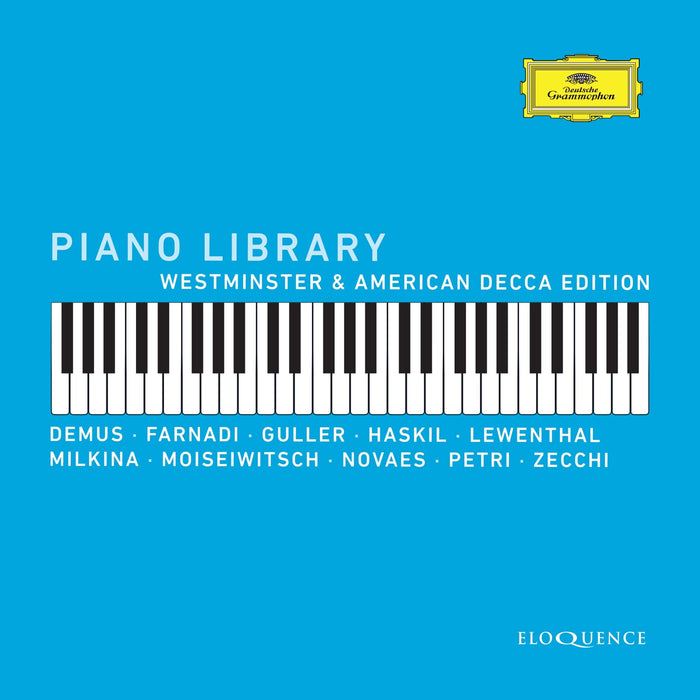Description
The two stereo Beethoven cycles, those of the Symphonies (1965-70) and the Piano Concertos (with Wilhelm Backhaus, 1958-59), form the core of this edition of the complete Decca recordings of Hans Schmidt-Isserstedt (1900-1973). It is distinguished by the Wiener Philharmoniker's unique transparency of sound allied to a firm pulse and rhythmic drive which characterized Schmidt-Isserstedt's conducting. Several of the recordings were produced by Erik Smith, the conductor's son.
Though it appears that he never stood in front of the Vienna Philharmonic in a concert, Hans Schmidt-Isserstedt achieved a remarkable rapport with a famously headstrong group of musicians when he conducted them in two stereo Beethoven cycles for Decca. In 1958-59 they recorded the piano concertos with Wilhelm Backhaus, as a stereo remake for the pianist's mono Decca cycle with the Vienna Philharmonic and Clemens Krauss. Backhaus was in his late 70s by then, conveying a lifetime's wisdom through his fingers while playing with apparently undimmed vitality.
The Decca producer for the concertos was the conductor's son, Erik Smith, and a familial sense of mutual respect and understanding may be one reason for the success of the symphony cycle made between 1965 and 1970. Schmidt-Isserstedt harnesses the unique transparency of the Vienna Philharmonic sound with the firm pulse and rhythmic drive which had always distinguished his conducting. The set has rarely left the catalogue since it was issued, because its virtues have never gone out of fashion.
Schmidt-Isserstedt's first recordings for Decca were made in the early 1950s, as founder-conductor of Hamburg Radio Symphony Orchestra, now known as the NDR Elbphilharmonie Orchestra. The ensemble began life after the war as a cultural project nurtured and supported by the British, and under Schmidt-Isserstedt's dedicated coaching it quickly became one of the most admired orchestras Europe. Their recordings of Dvorak's Seventh and Tchaikovsky's Fifth symphonies were made in state-of-the-art Decca mono sound, produced by John Culshaw.
As the reputation of the NDR orchestra spread internationally during the 1960s, so did that of its conductor, who became a welcome and familiar presence in front of the London orchestras. He exerts gentle and sovereign authority over the London Symphony Orchestra on a 1967 album of Mozart concertos in partnership with Vladimir Ashkenazy.
This Eloquence set is issued with original covers and a new essay by Peter Quantrill on Hans Schmidt-Isserstedt and his Decca legacy.
"Schmidt-Isserstedt is the man for the job. His reading is strong, spacious and noble, and the symphony emerges at its full tragic stature. The playing and recording are in every way worthy of him." The Times, August 1953 (Dvorak: Symphony No. 7)
"This well-engineered recording deserves repeated hearing." The Times, March 1959 (Beethoven: Piano Concerto No. 4)
"Schmidt-Isserstedt partners Backhaus knowingly and the Vienna Philharmonic plays magnificently ... That such a strong and virile reading should be the product of fingers that have been playing this work for 60 years and more is a remarkable tribute to the stamina and discipline of one of music's elder statesmen." Stereo Review, July 1960 (Beethoven: Piano Concerto No. 5)
"Schmidt-Isserstedt and the Vienna Philharmonic supply a superb accompaniment ... the pianist is now in his late seventies, but his pianistic powers seemingly are undimmed: he plays the G major Concerto with masterful clarity and freshness, and his technical equipment is prodigious." Stereo Review, April 1962 (Beethoven: Piano Concerto No. 4)
"The playing has innigkeit, the sense of concentration that to my mind is the first essential in Beethoven." Gramophone, September 1966 (Beethoven: Symphony No. 9)
"The performance has, above all, the great virtues of clarity and crackling tension, achieved through a sense of big line, some careful, crisp ensemble articulation and phrasing, and an attractive, clean, clear recorded sound." Stereo Review, March 1967 (Beethoven: Symphony No. 9)












